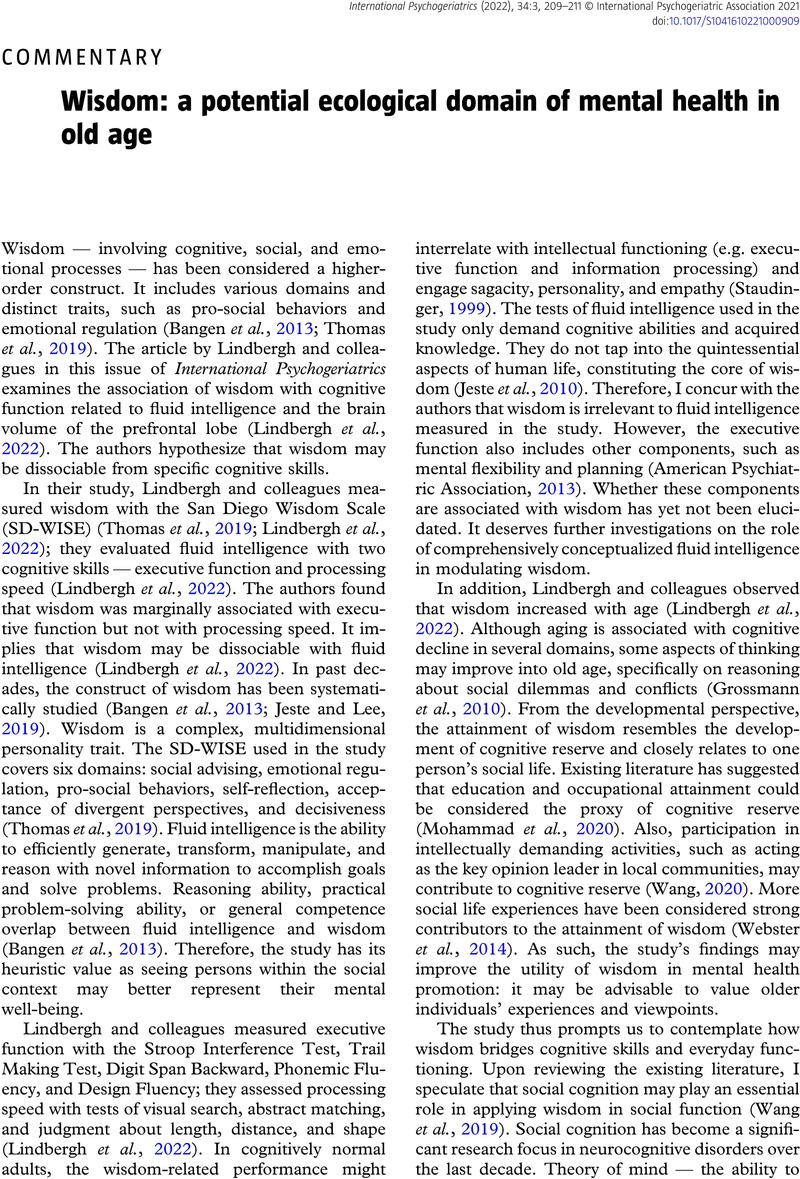Crossref Citations
This article has been cited by the following publications. This list is generated based on data provided by Crossref.
Wang, Huali
2022.
Wisdom in healthy aging research: starting from measurement.
International Psychogeriatrics,
Vol. 34,
Issue. 7,
p.
593.
Wang, Huali
and
Yu, Xin
2023.
Strengthening implementation research on social prescribing in mental healthcare for older adults in Western Pacific Region.
The Lancet Regional Health - Western Pacific,
Vol. 35,
Issue. ,
p.
100721.



